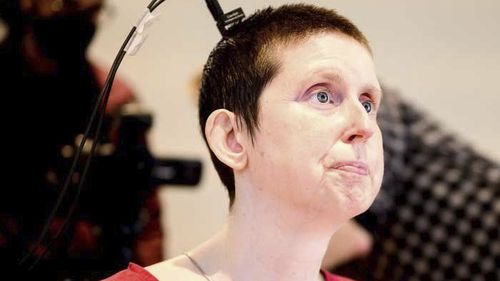Scientists have developed a device that can translate thoughts about speech into spoken words in real-time.
Although it’s still experimental, they hope the brain-computer interface could someday help give voice to those unable to speak.
A recent research study involved testing a new device on a 47-year-old woman who had quadriplegia and lost her ability to speak for 18 years post a stroke. Surgeons implanted the device in her brain as part of a clinical examination.

In California, a group of scientists monitored the woman’s brain waves through electrodes while she silently formulated sentences in her mind. Utilizing a synthesizer that replicated her voice before the injury, they crafted speech sounds she would have produced. They also educated an AI system to decode brain activity into understandable speech units.
According to Anumanchipalli from the University of California, Berkeley, this system operates comparably to current technologies employed for transcribing meetings or telephone conversations in real-time.
The implant itself sits on the speech centre of the brain so that it’s listening in, and those signals are translated to pieces of speech that make up sentences. It’s a “streaming approach,” Anumanchipalli said, with each 80-millisecond chunk of speech – about half a syllable – sent into a recorder.

Row between music superstar and father costs one their life
“It’s not waiting for a sentence to finish,” Anumanchipalli said.
“It’s processing it on the fly.”
Decoding speech that quickly has the potential to keep up with the fast pace of natural speech, said Brumberg. The use of voice samples, he added, “would be a significant advance in the naturalness of speech.”
Though the work was partially funded by the US National Institutes of Health, Anumanchipalli said it wasn’t affected by recent NIH research cuts.
More research is needed before the technology is ready for wide use, but with “sustained investments,” it could be available to patients within a decade, he said.








